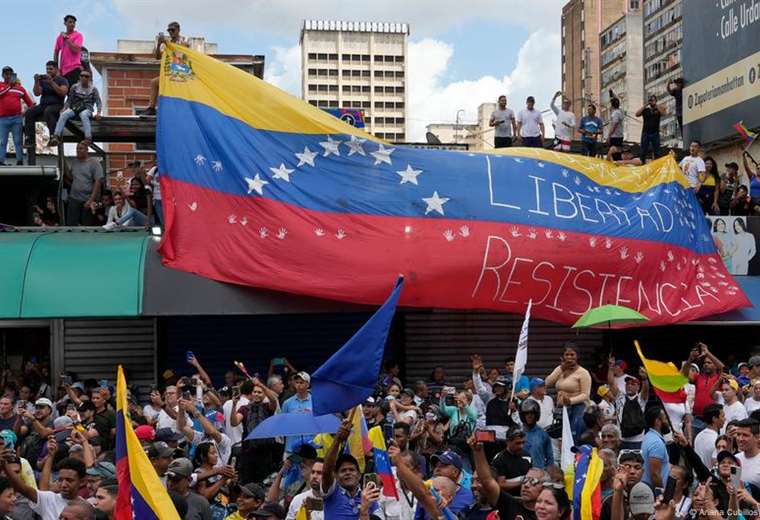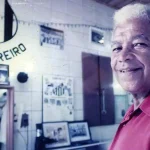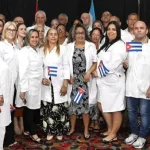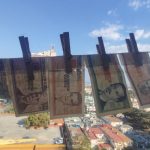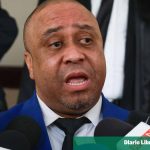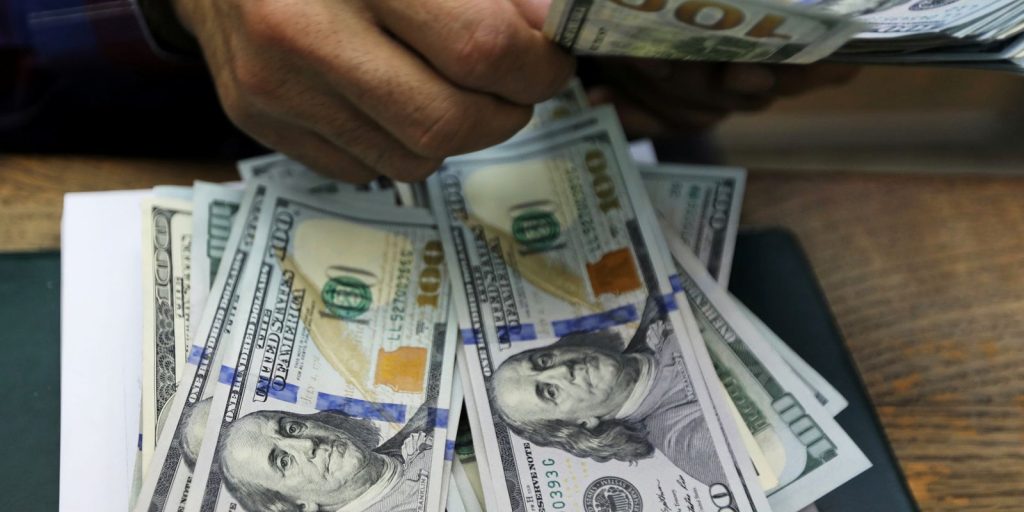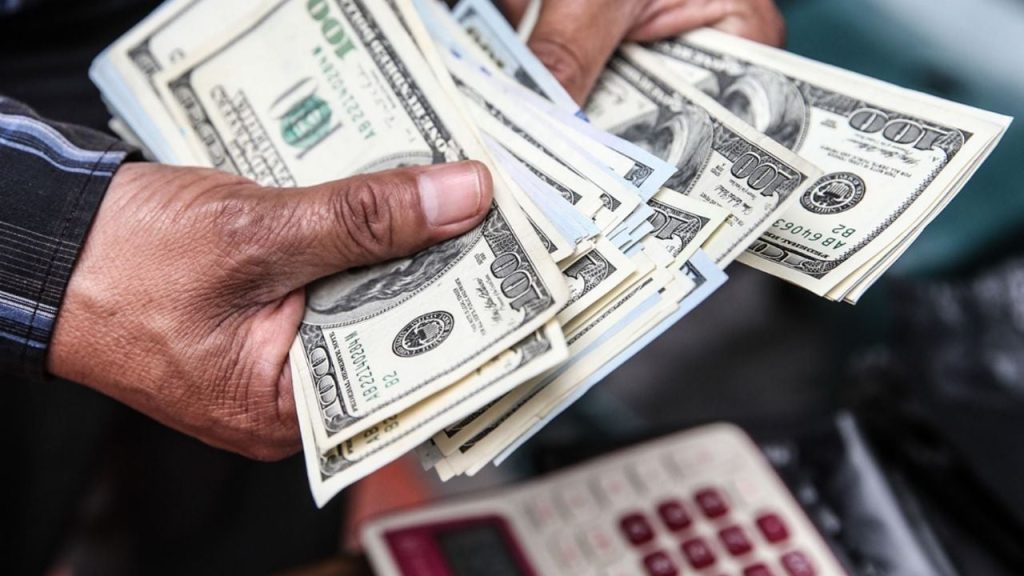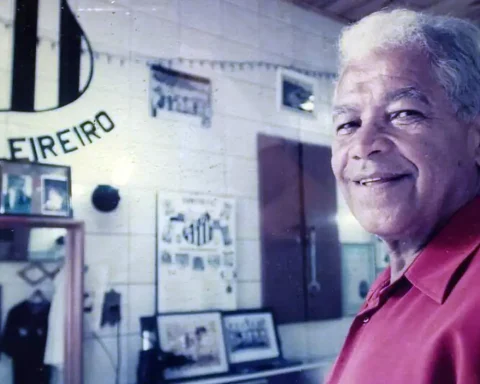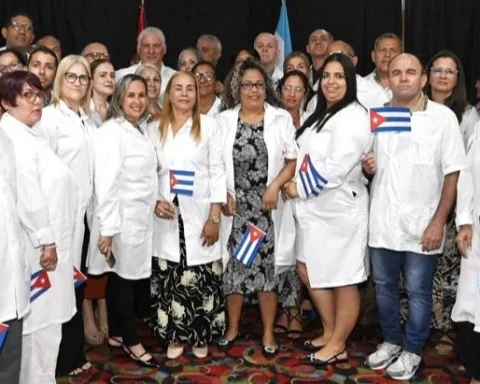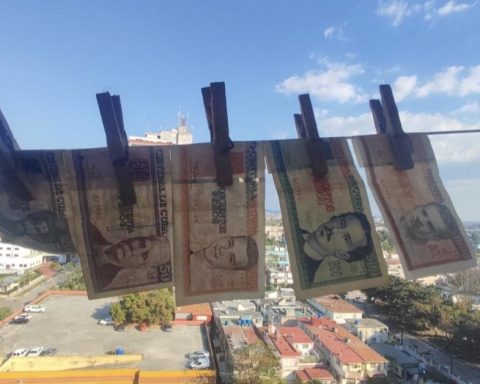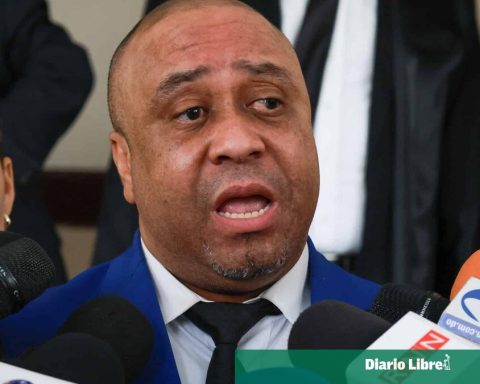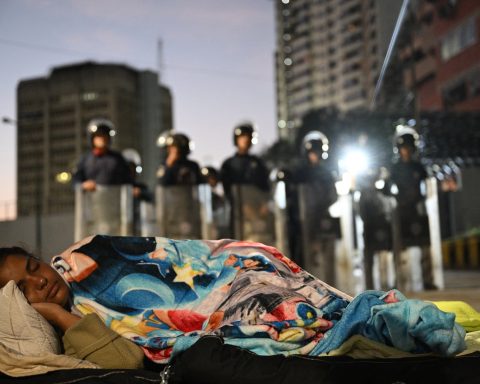July 19, 2024, 12:16 PM
July 19, 2024, 12:16 PM
In the final weeks of the Venezuelan presidential campaign, Nicolás Maduro, who is seeking a third consecutive term, has abandoned his usual promises of an eventual recovery of the country to intensify a rhetoric full of threats and intimidation, warning that if he loses the next election, a civil war would break out in Venezuela that would plunge it into chaos and violence.
On July 11, in a speech in the state of Aragua, Maduro threatened a scenario of armed confrontation in the country: “On July 28th, war or peace, riot or tranquility, a national project or a colony, democracy or fascism will be decided. Are you ready? Are you ready? I am ready, I love Venezuela, I have the experience, I am not afraid of the devil. God comes with me, God with us, the people with us.”
The escalation of the violent tone of his speech continued on July 18. In a video replicated by Telesur, the official candidate threatened: “If we tell the people, the Armed Forces and the police forces ‘to the streets’, then There will be a revolution like the 20th century, popular and armed, It will be another revolution. It would be inevitable, if the fascist right comes to power, a popular and armed revolution would be inevitable.”
Recently, Nicolás Maduro raised the violent tone of his threats even further during an event in the La Vega parish of Caracas: “If the right deceived the population in Venezuela, There could be a bloodbath and a civil war Because this people will not allow their homeland or social rights to be taken away from them.”
Maduro’s threat, which seeks to place Venezuela in a dichotomy between the government of the Bolivarian Revolution or a civil war, is not a new strategy. This political blackmail was used repeatedly by his predecessor, Hugo Chávez. An example of this occurred during Chávez’s last presidential campaign against Henrique Capriles in 2012. On September 11 of that year, from the Alba Hotel in Caracas, Chávez launched a very similar threat: “Only the resounding victory of the Bolivarian Revolution in elections will keep Venezuela away from the fear of a civil war.”
Under both Chavez and Maduro, the escalation of violent and intimidating rhetoric during the elections responds to a calculated strategy to try to preserve power in the midst of circumstances that are adverse to them.
This is especially true for Nicolás Maduro right now. Despite the opportunism and the growing state violence against the democratic opposition, most of the country’s polling companies are predicting the winner, by an average margin of more than 30 points, to the representative of the Unitary Platform, Edmundo González Urrutia, backed by María Corina Machado.
The most recent national survey by the Delphos Institute, conducted from July 5 to 11, 2024 through direct interviews with people over 18 years of age registered in the Electoral Registry (RE), reveals a very adverse electoral panorama for Maduro. The study shows that 73.3% of respondents consider a change of government to be “necessary” or “very necessary”reflecting a strong desire for a change of political direction in the country. Regarding voter turnout, 80.6% say they are sure they will go to the polls in the presidential elections on July 28, which suggests a high voter turnout. Internal calculations by the polling firm estimate that the real probability of a person turning up to vote on election day would be approximately 61.5% of the RE, which is equivalent to 13.1 million voters.
The survey indicates that Edmundo González Urrutia would have a voting intention of 59.1%, while Nicolás Maduro would only have 24.6%, that is, 34.5 points below. If voting intention is weighted with the high willingness to vote, the difference would still be 25 percentage points in favor of Edmundo González.
Maduro seeks to mobilize the loyalty of the Chavista base
The Delphos survey reveals a clear erosion of support for Maduro within the ranks of Chavismo itself. The results of the poll show that 30.6% of the electorate identifies as “Chavista”, But of this group, almost half (14.3%) declare themselves “Chavistas dissatisfied with Maduro.” This dissatisfaction with the current leader of Chavismo is reflected in the voting intentions of this group. Of the 100% of Chavistas dissatisfied with Maduro, only 30.5% would vote for him, while 8.2% would opt for González. 17.0% of this group would choose a candidate other than Maduro and González, 11.8% are undecided, and 6.1% would not vote for either. These results highlight the dispersion of the Chavista vote and the challenge that Maduro faces in uniting his traditional political base.
This challenge is precisely the first objective that Maduro’s violent rhetoric aims at: mobilizing and uniting the loyalty of the Chavista base around him. This strategy is based on the presentation of catastrophic scenarios and the instilling of fear in his followers about the possible consequences of an opposition victory in the elections, while urging them to preserve, by any means, the power achieved by the Bolivarian Revolution. “What would happen to all the social, cultural, political, spiritual, moral and military power that the revolution has?” Maduro asked his followers in the state of Portuguesa.
Maduro prepares the post-election scenario
Even mobilizing the Chavista bases, Maduro knows he does not have the necessary votes to win a fair election. However, up to this point, Maduro has shown that he still maintains control of the state apparatus, including, as far as can be seen, the support of the high command of the National Armed Forces and the Chavista nomenclature. Everything seems to indicate that he will continue to use them, as he has done until now, to try to guarantee his permanence in power.
Actions that use the State apparatus to suspend elections, disqualify Gonzales Urrutia’s candidacy, or fraudulently distort the election results would have a high political cost, both nationally and internationally. Seeking to lower these political costs, The regime has been trying to call into question the results of the polls. Analysts close to the regime, or at least convinced of the convenience of Maduro remaining in power, have been arguing that voting intention for Maduro has been growing lately and that, historically, polls in Venezuela have favored the opposition by more than 20 percentage points over Chavismo.
This type of analysis seeks to sow the idea that there is a “virtual technical tie” between González Urrutia and Maduro, preparing the ground so that public opinion, both national and international, is not surprised when the Chavista CNE issues results that differ significantly from what the polls indicate as well as from the overwhelming support that is evident in the mass rallies in support of González Urrutia throughout the country, in contrast to the low attendance at events in support of Nicolás Maduro.
In this case, Maduro’s violent rhetoric and threats of civil war are intended to dissuade those opponents who intend to claim that the government could manipulate the election results. Maduro’s message in this regard has been very explicit: “On July 28th, war or peace will be decided… I am prepared.”. I have the experience, I am not afraid of it,” surely referring to the ruthless repression that was unleashed in the country in 2014, 2017 and 2018, and for which investigations are open in the International Criminal Court for the commission of alleged crimes against humanity.
Finally, the ultimate recipient of Maduro’s violent rhetoric is the international community. Maduro, backed by some national and international lobbyists, seeks to convince the Western world that only his victory could guarantee peace, order, oil production and migration control in Venezuela.
